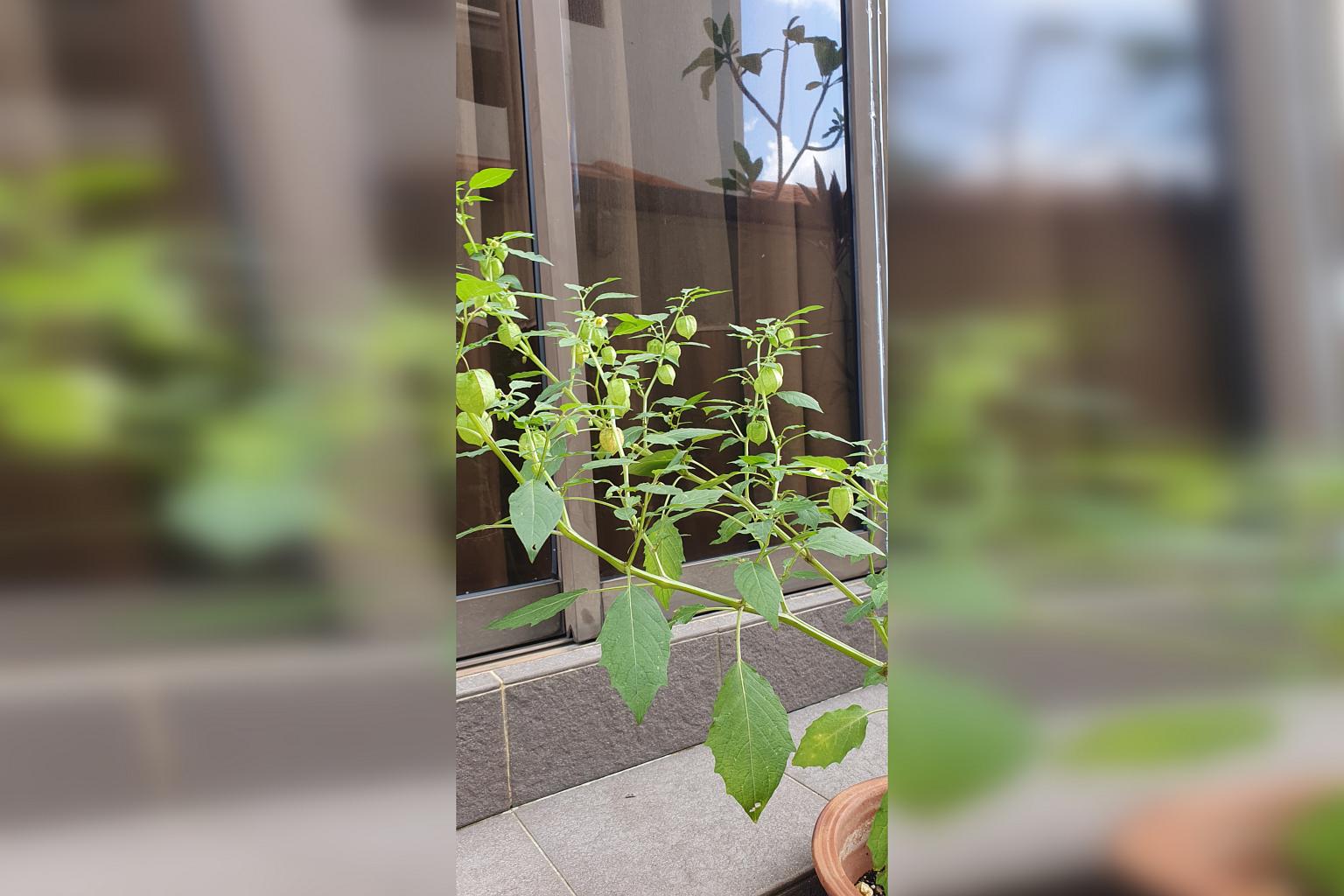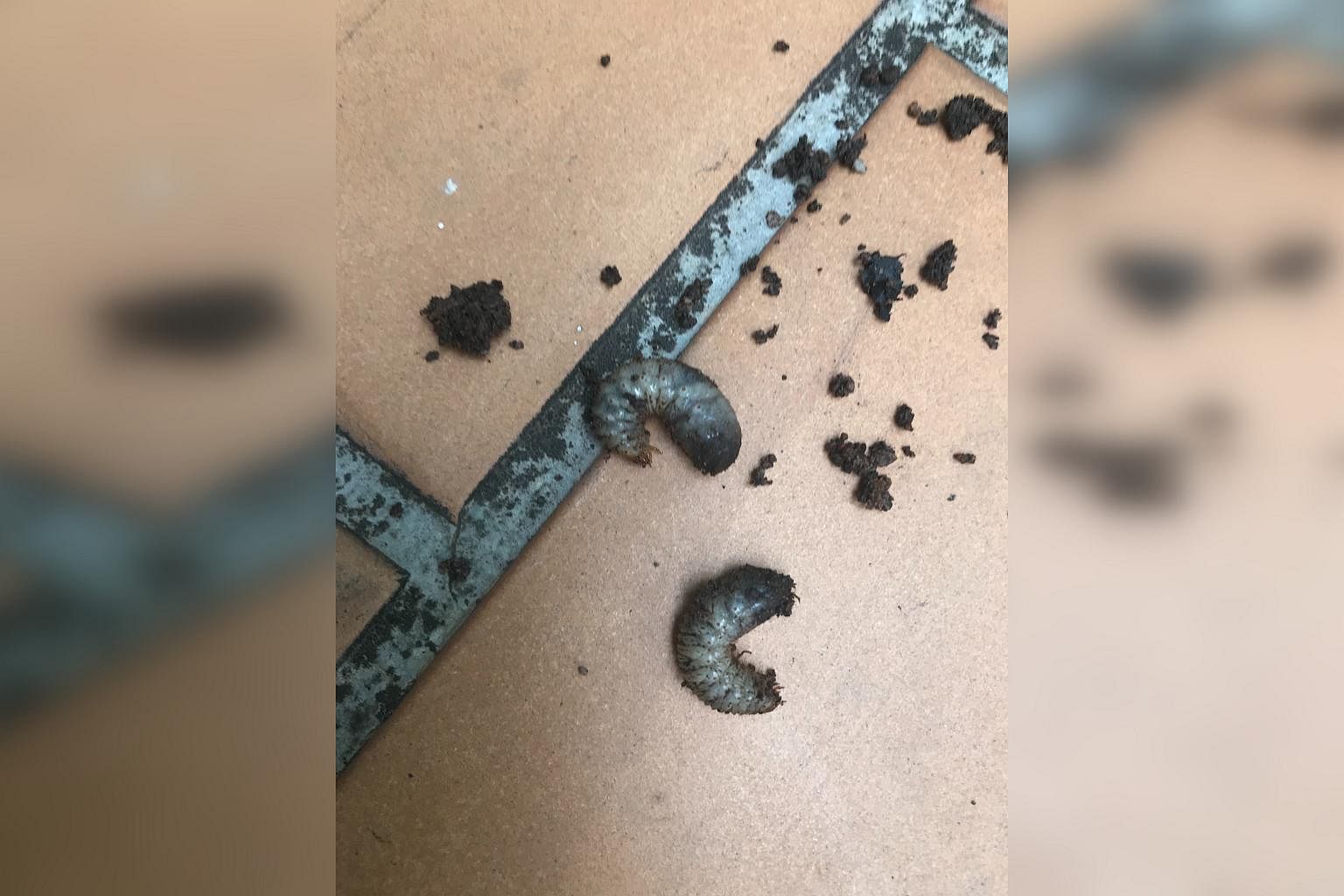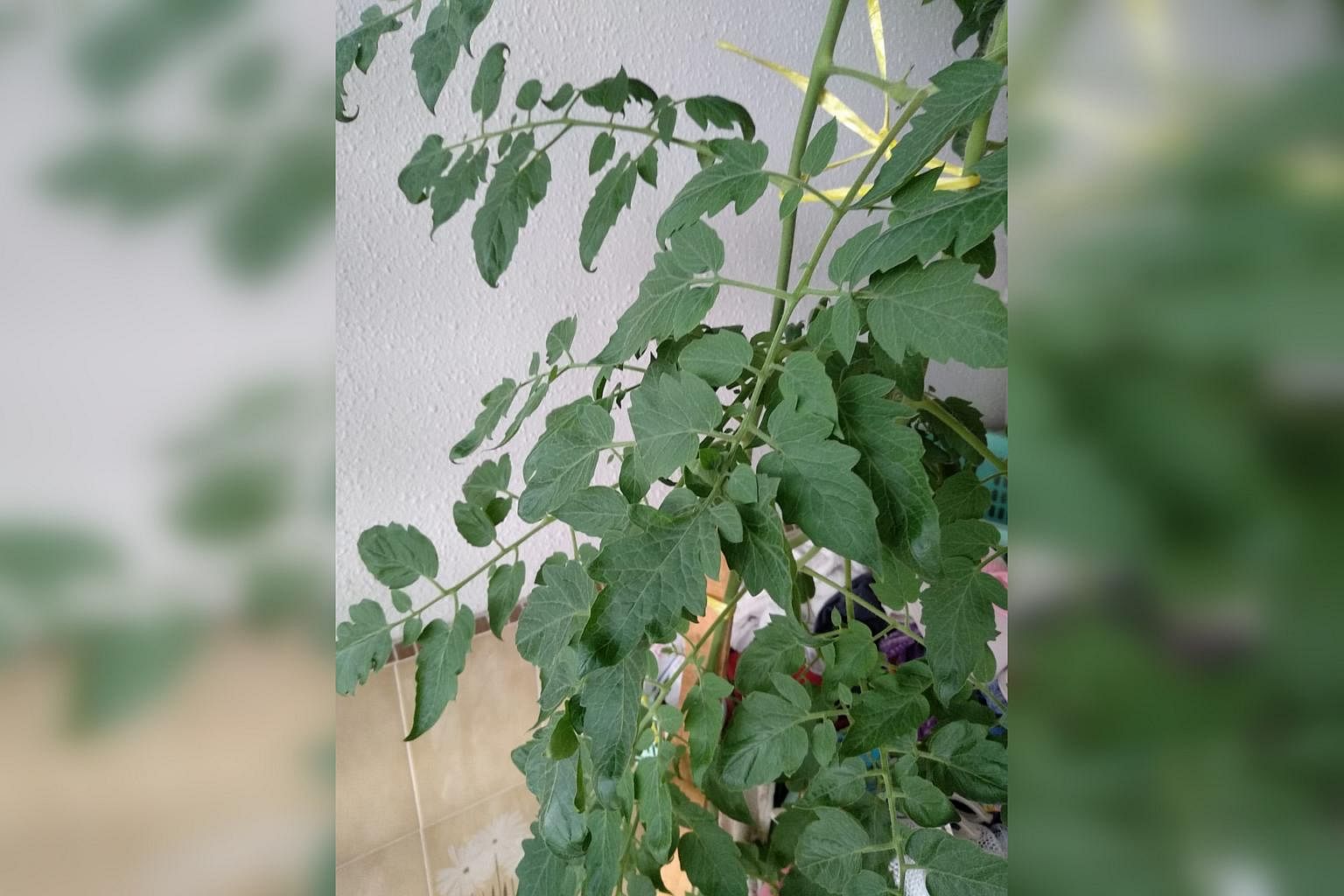Root Awakening: Wild Cape Gooseberry, Chinese Violet and beetle grubs
Sign up now: Get ST's newsletters delivered to your inbox

The plant's common name is Wild Cape Gooseberry.
PHOTO: ANG GERK KUAN
Wild Cape Gooseberry occurs as a weed, produces edible fruit
What is the name of this plant? Can the fruit be eaten?
Ang Gerk Kuan
The plant commonly occurs as a weed. Its common name is Wild Cape Gooseberry and its botanical name is Physalis minima.
Its fruit are edible when fully ripe - as seen by the dried, papery, outer husk that covers a bright orange berry.
Beetle grubs are natural decomposers

Whenever I repot my plants, I discover a number of larvae (right) deep in the soil. What are they? Will they affect the quality of soil and earthworms? How do I stop the larvae from multiplying and getting into the soil during repotting?
Joseph Kok
These are beetle larvae, natural decomposers that occur in soils with partially decomposed organic matter.
Once the decomposition process is completed, there is no more food source for the larvae and their population will gradually decrease.
As such, if you are using any form of organic matter to improve your soil, it is a good practice to let the organic matter fully decompose in a separate corner, such as a compost heap, before adding it to the soil in your garden beds or flower pots.
Plant is likely the chilli; curry leaf plant infested with tortoise beetle

PHOTO: LIM WEI SHYONG
This plant beside my mandarin orange plant grows very fast and is the same height as my other plant. Is it a variety of chilli? I had previously put some chilli seeds in the pot, but the plant did not flower and kept growing leaves.

PHOTOS: LIM WEI SHYONG
Also, there are two types of insects - one white and the other black - growing on my curry leaf plant, leaving small holes on the leaves. What are they? I have pruned the affected leaves, but the pests keep coming back.
Lim Wei Shyong
The plant morphologically looks like the chilli plant, but a confirmation can be done only with the production of flowers and fruit.
Make it a habit to sow seeds in individual pots with labels written with the name of seeds and date sown, so you do not forget what grows in them.
The leaves of the plant have tiny yellow spots and may be infested by spider mites.
Based on the second and third pictures, it appears that your curry leaves are infested with tortoise beetle. The black spots are the larvae of this beetle, which has a curious, protective mechanism that involves carrying waste products on the tail hanging over the body. The white, round beetles are the adults.
The pests can be difficult to control with common organic pesticides.
Pesticides with pyrethrins, which are derived from the insecticidal chrysanthemum flowers, may provide rapid knockdown and leave little residue - these may be suitable as you are growing an edible plant.
Try to spray such pesticides during the later part of the day to avoid affecting pollinators and other beneficial insects.
Chinese Violet produces edible leaves

This herb was a gift. Can you help identify it?
Adeline G.L. Thio
The shrub is botanically known as Asystasia gangetica. Its common names include Chinese Violet and Ganges Primrose.
It is often grown as an ornamental groundcover plant in local landscapes and, at times, it escapes cultivation and becomes a weed.
The leaves are edible as a leafy vegetable and are stripped from the fibrous stems before cooking.
Plant is tomato

What is the name of this plant (above)?
Keet Lim
The plant is tomato (Solanum lycopersicum).
It is a good practice to put a label with some basic information about the plant, such as the name of the seeds, so you know what eventually grows in the pot.
Use a pencil to write on plastic labels so that the words do not fade with prolonged sunlight exposure.
Answers by Dr Wilson Wong, an NParks-certified practising horticulturist, parks manager and ISA-certified arborist. He is the founder of Green Culture Singapore and an adjunct assistant professor (Food Science & Technology) at the National University of Singapore.
Have a gardening query? E-mail it with clear, high-resolution pictures of at least 1MB, if any, and your full name to stlife@sph.com.sg. We reserve the right to edit and reject questions.
Virtual talks on gardening
GROWING EDIBLE GINGERS
What: This virtual talk by Dr Wilson Wong covers edible gingers, their growth habits and requirements.
WHERE: Zoom
When: Dec 26, 2 to 3pm
Admission: Free
Info: Register here
GARDENING Q&A
What: Have issues growing plants in your garden? Join this virtual meeting to get them answered by Dr Wilson Wong.
Where: Zoom
When: Dec 26, 3 to 4pm
Admission: Free
Info: Register here


